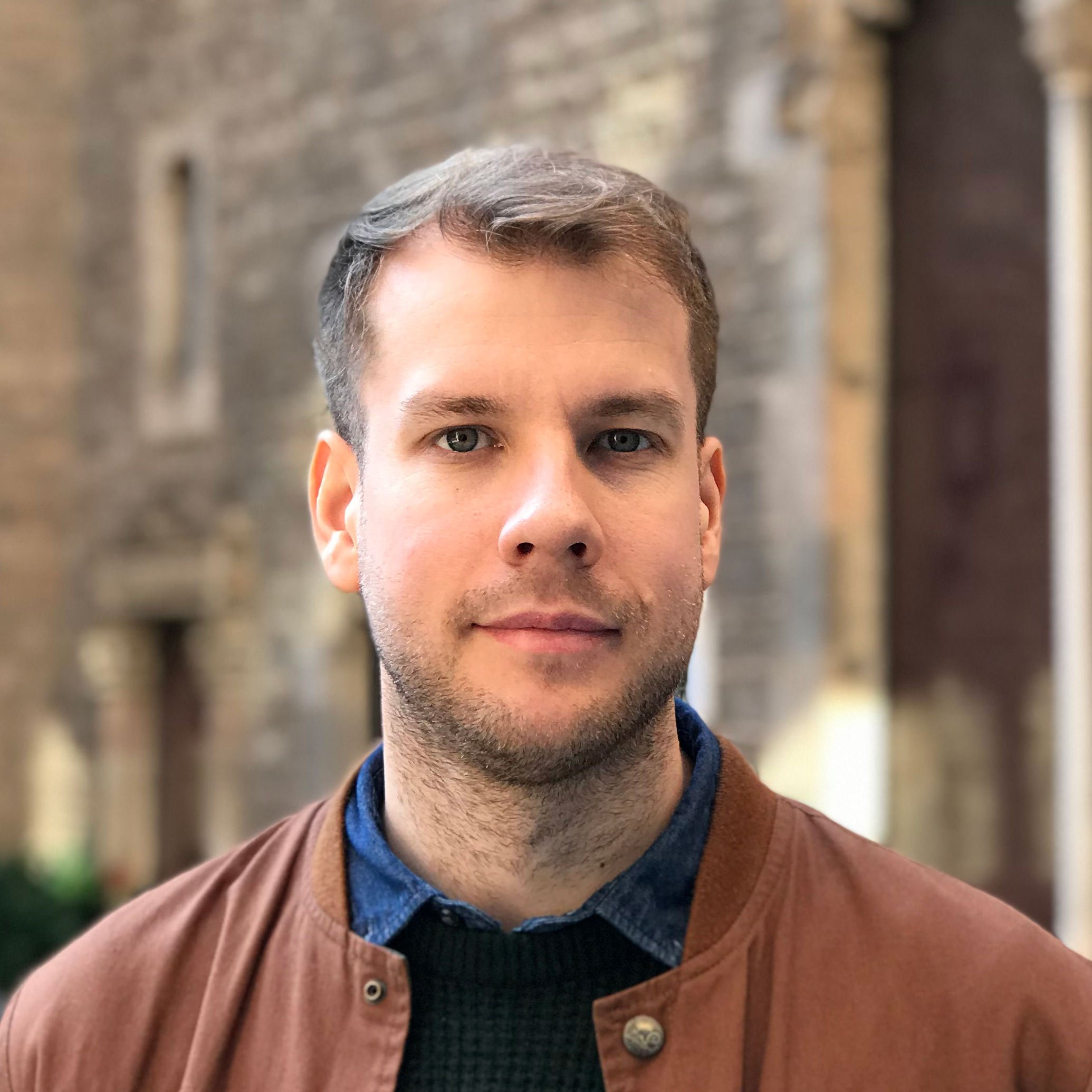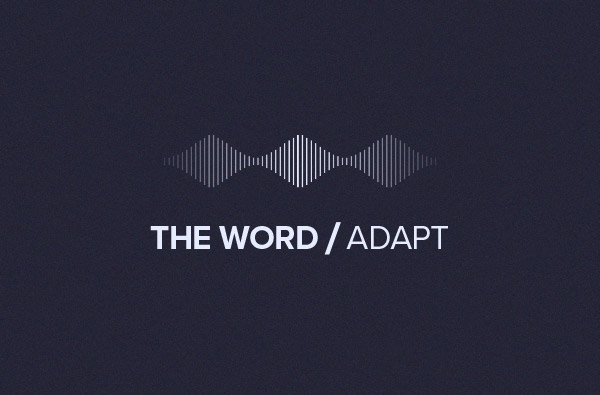Table of contents
The Word in Hospitality is a brand new hospitality podcast that encourages discussion and provides food for thought around some of the key topics within our industry.
Hosted by the fine folk at Mews (yes, we’re biased), every episode sees a new pod of hoteliers and hospitality experts tackle a different word. The first topic we chose encapsulates what’s happening around the world right now within our industry: adapt.
This time around, we were lucky enough to be joined by:
- Richard Valtr, founder of Mews
- Calvin Anderson, CCO of Domio
- Charlie MacGregor, Founder and CEO of The Social Club
- Rami Zeidan, Founder and CEO of Life House
You can watch the podcast below, or read on for some of the highlights from a wide-ranging conversation.
Rise of the lifestyle hotel brands
Richard: There’s the idea that you're not staying somewhere because you need a place to sleep, but because you actually want to be part of the community, part of an identity. I think that's something that is happening a little bit more.
Charlie: There's definitely a culture change. For me, there's a massive change in the way that work and life today are completely intermingled. I mean, now I don't really feel that I'm working; this is a nice experience, nice to meet you people. The way we work and live has blended into one, so you want to be able to do things very close by.
Community based experiences were maybe triggered by the lack of personality in the hotels. Even Airbnb was saying you're a community because you're meeting the host and you're being welcomed and stuff like that.
What we're doing by mistake is rekindling the essence of hospitality, providing many different room categories for many different customers and letting them do what they want, when they want; just letting people be themselves. You're coming as close as you can to being in your own home because you feel this community atmosphere.
Rami: It's really important for spaces to be active and people to feel comfortable interacting with people. So much about what a meaningful experience is, is those organic connections that aren't prescriptive. They're not necessarily specific programming but if there's a space that can cultivate a community of both travelers and locals, that's really what we aspire to create.
75% of our food and beverage revenue is from locals. Our guests stay with us not always for practical reasons as much as they can rely on being able to interact with locals that are there, and that's not necessarily a new phenomenon in the boutique hotel industry. But at scale, for us, what's challenging about it is the concepts – the food and beverage concepts are unique to every location despite the hotel brand being similar. I don't think F&B scales in its creative concepts because people want something truly authentically local.
Building a sense of community
Calvin: Where our community starts the most is in group and friends travel, which is almost our Gen Z, millennial generation. The top half of our millennial and Gen X travelers, in a lot of cases, is about the idea of family travel that wants the ability to have kids with them. Parents can have a separate space but they can see everybody. So there are a lot of families. And then we go back into the lower millennial and Gen Z generation, once we get to the avocado toast-spreading baby boomers who also really like to travel as families, or as groups as well. Oftentimes those end up being a one or two month stay, in a lot of cases.
Charlie: If, for example, I'm going to New York and I see that the Hoxton Hotel is open, I know what type of crowd is going to be in the Hoxton so I can decide if it's the right type of place for me to stay in, depending on if I'm going with my girlfriend, with her kids, or my friends or business or whatever.
With a community based hotel, you know what you're getting when you go there and you go there for a specific reason: because you want to be part of that community. I think that’s really missing from the bigger hotels. You go to a Marriott and what are you part of? There's nothing going on. There's nothing there. So we wish to leave as soon as we walked in. We'd go to Starbucks and work in Starbucks because we also knew what type of community we're getting there.
Segmentation: who should you be targeting?
Calvin: In the current environment, we're mostly looking for the customers that pay with real money, my favorite kind of customer currently.
The industry is really frumpy when it comes to segmentation. Segmentation is a world of ten or 15 lenses of permutations, which creates hundreds of thousands in cost of acquisition. I've been doing distribution and revenue management for a solid ten to 15 years in the most complex places, and I think that we over-simplify the customer behavior. It wouldn't take much more than just looking at your own behaviors to understand how truly complex it is, how many hours, how many platforms you look at.
Sometimes you can over-segment in a way that you no longer see your traveler as they actually are. So my objective is to see them and to evolve my customer acquisition strategy in an agile method. We shift and we're agile and we run our customer acquisition like a Wall Street day trading war room.
Rami: I think meta-search is taking over customer acquisition in a big way, Google specifically. And I know some of the other groups are trying desperately to compete with that.
Customers have access to a ton of information and they want that information in the most succinct accessible format. In time there's ways to cultivate community and the right types of travelers to your hotel through targeted digital marketing, but it's perishable and you need to fill up rooms.
Charlie: I do find that we are now doing a lot of work during this crisis to really think about what we have been doing and what do we want to do? What was working really well and what can we do better? One of the things that we realized is identifying what type of customer we want and what type of customer we don't want. Of course, everybody's welcome, for sure, especially with our mindset. But we look at the corporate traveler and we define ourselves and the new generation corporate traveler, the home for them.
Our new generation corporate traveler has access to coworking, to the local entrepreneurs, the local startups and local mentality. So we have to profile ourselves a little bit and go through a transition period where we're just taking any business to specifically saying we want the new generation corporate travelers.
Slowly we're trying to define our mindset because we realize then that the reviews are better. Guests are much happier, they spend, and their contribution to the community is much better. They're walking out with a bigger smile on their face and they're more likely to direct book with us. So I do think there are ways that we have to battle Google and we have to differentiate ourselves and specifically say, "Look, you and me are meant to be together at this moment." And it doesn't mean that everybody else is not welcome, but you're focusing a bit narrower on a certain client.
Adapting your strategy during a crisis
Richard: Are you guys adapting your brand because of Corona at all?
Charlie: We're deploying new strategies at all of our hotels so that's been quite an easy transition; it's going to be quicker than we thought because there are not so many bookings to transfer. Plus we’re adding co-working spaces. We're building co-working units of three, four, five thousand square meters in our buildings, so we're really becoming a co-working, co-living organization.
We still do marketing because we're actively renting our student rooms today and luckily, a lot of students are booking for September which is really good. But in terms of branding and positioning, we're all at home at the moment. Even if I look at myself, I need to go traveling, but I know my government is worried about it and I don't want to endanger anyone else. So given I’m going from traveling 250 times a year to now thinking about if I should get on a plane or not, the amount of money we're allocating to branding is very small at the moment because people are just not in that decision making area.
Rami: Our fundamental business has always been focused on reducing the cost of delivering a lifestyle experience. We formally launched our white label management company two weeks ago where we basically saw that hotel owners were oblivious to the fact that they had bad management companies underneath them. So we're finding there's an opportunity to bring our efficient cost structure to hotels that we don't even brand. And we're excited about that opportunity, at least in the short term, to help, to have some growth.
Then we're also looking at some M&A opportunities. There are a lot of folks, especially in the independent space, that thought, "I have a good idea about a brand," and that used to be good enough. It's no longer good enough. There are a lot of independent hotels that need help. They get married to OTAs even if they're barely breaking even, particularly small hotels pre-covid, and it's not going to make sense for them to reopen with a 20-30% cut to revenue. So we're trying to figure out how we can help those independent hotel owners. I think it starts with great software.
Calvin: When people say OTAs are expensive, I would argue 90% of those people probably have garbage attribution modeling in their own media acquisition costs, and are probably not understanding how deeply expensive their own acquisitions are. In fact, I would challenge most people to beat a booking.com 15% commission, consistently driving volume in their own costs. It’s truly incredibly difficult.
You've maybe heard me say this a million times, but I'll just beat the drum because I love the sound. I would rather pay an OTA more to bring me incremental business that is away from my bottom of the funnel so that I can legitimately capture my bottom of the funnel at an economized cost.
What I'm trying to build, ultimately, is a world where we have really clean visibility and versatility to dynamically respond to whatever this new world is, so that if I have to cut costs or if I have to pivot, then I can move. For example, in terms of marketing efforts, we're actually seeing better ROIs on marketing than ever because everybody else is shut off.
Keep up with the conversation
This was only a snapshot of what Richard and co. talked about during the episode, so please take the time to listen or watch in full. To make sure you don’t miss future episodes, you can sign up to Word in Hospitality updates.

2026 Hospitality Industry Outlook
Download now
Table of contents
Hospitality hot takes straight to your inbox



.webp)